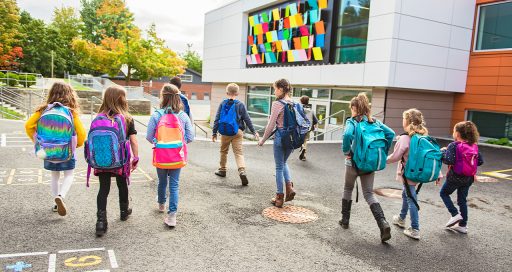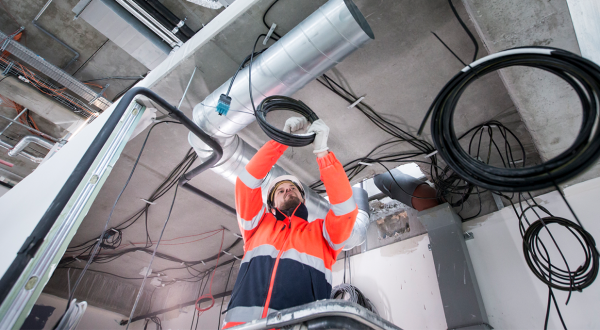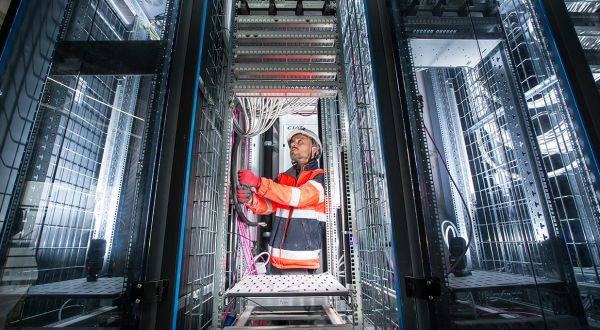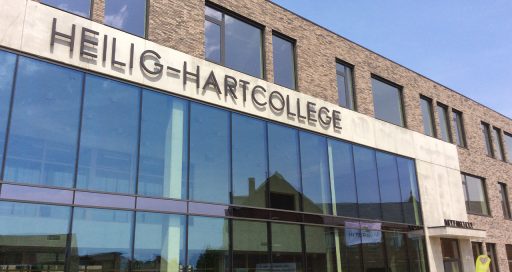Renovating schools to transform learning and prepare for the future
Reading time: 5 min
At the intersection of environmental, social and academic issues, the European schools market is undergoing a radical transformation for growth, including the renovation of building assets. There are obstacles, but also real levers for acceleration. VINCI Energies Building Solutions is championing an integrated global partnership approach.

The educational establishments sector in Europe is undergoing a radical transformation and now represents a major strategic opportunity for construction companies. With added momentum from the “Renovation Wave”* initiative and the increasingly stringent requirements of the Energy Performance of Buildings Directive, this overhaul goes far beyond a simple energy standards upgrade to encompass the quality of teaching, the well-being of building users, and the international reach of these establishments.
A booming but fragmented market
A key characteristic of the educational establishments market in Europe is how disparate it is. “While the education segment overall is growing rapidly at European level, there are major variations between countries,” says Lydie Marchand, Head of Marketing and Communications at VINCI Energies Building Solutions. “For example, Italy is looking at a 25% expansion in space given over to education by 2027, while Sweden is expecting a 10% contraction.”
This disparity is due to contrasting national dynamics arising from diverse asset bases, different educational models, and unequal opportunities for financing. Additionally, the term “educational establishments” covers a huge variety of venues – from primary schools and high schools to public universities and private graduate schools, all with different needs and available means.
Renovation on the front line
Another key feature is that, although new builds continue, most investment in now focused on renovations. “Public educational establishments have become a symbolic element in some national energy renovation strategies,” says Lydie Marchand.
The French government, for example, has launched a huge plan to modernise the thousands of schools designated “heat sieves”. Higher education also has massive needs, with more than €118 million required just to upgrade universities to current standards.
For private establishments, other factors are encouraging renovation, including competition to attract international students. “Universities and private schools are investing massively in increasingly large, modern, connected, low-cardon campuses,” says Lydie Marchand. “These projects are part of their efforts to move upmarket and directly support their competitiveness in international rankings.”
Persistent structural barriers
Despite this potential, numerous barriers are slowing the market’s momentum. The first is financial: the European Commission estimates that an additional €275 billion a year is needed to achieve decarbonisation targets.
“Public educational establishments have become the spearhead of national energy renovation strategies.”
Then there are diverse regulatory barriers, operations often taking place on occupied sites with rigid deadlines, and pressures in some countries on the availability of skilled workers.
Levers for acceleration
Numerous avenues exist for meeting these challenges. Special contract models (public-private partnerships, global energy performance contracts) make it possible to mutualise risks and investments. European financial instruments such as NextGenerationEU and European Investment Bank loans are also available.
Public stakeholders also have a crucial role to play. “In a country like France, schools represent on average 31% of energy consumption. They are visible and socially strategic, and often prioritised in renovation plans.”
Industrialisation and digitalisation are also key levers: off-site prefabrication to limit disruption to occupied sites; digital twins to plan and simulate renovations; and using data from the IoT to improve air quality and optimise energy performance.
Integrated approach for global partnership
In this context, VINCI Energies Building Solutions is positioned as a leading player. Lydie Marchand explains: “We have all the know-how required to support the transformation of educational establishments across Europe, whether meeting the environmental challenges or reinventing learning spaces.”
This support goes beyond construction work alone to include: performing site audits; putting together financial reports; seeking out subsidies; and drawing up contracts to ensure energy performance, design and operation over many years. This integrated approach is part of a long-term vision of supporting local authorities as well as private companies.
With the European schools market located at the point where environmental, social and academic challenges meet, it offers VINCI Energies a remarkable playing field for innovation and partnership, where every project becomes a showcase for energy transition and educational quality.
*Renovation Wave: an initiative launched by the European Commission in October 2020 as part of the Green Deal. Its primary objective is to accelerate the energy renovation of buildings in Europe.
11/14/2025




